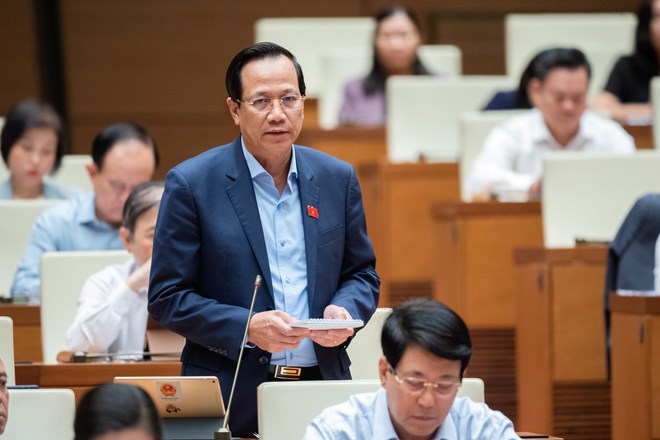
It was hard before , it's harder now.
On the afternoon of October 30, the National Assembly continued to discuss national target programs. Minister of Labor, War Invalids and Social Affairs (MOLISA) Dao Ngoc Dung explained and clarified a number of contents raised by National Assembly deputies at the discussion session.
Minister Dao Ngoc Dung highly appreciated the monitoring results of the Monitoring Delegation, which objectively and comprehensively assessed the implementation process of the three national target programs.
He affirmed that the monitoring process has created fundamental changes in the awareness and actions of all levels and sectors. After this monitoring, the changes will be faster and more effective.
Regarding the national target program for sustainable poverty reduction, Minister Dao Ngoc Dung said that, unlike the previous term, this term requires more work. It was difficult before, but it is more difficult now because it requires not only reducing income poverty but also multidimensional poverty reduction, higher, more comprehensive and sustainable.
In recent times, in addition to determination, the implementation of the program has encountered many difficulties and challenges, including objective causes from the COVID-19 pandemic, natural disasters, floods, storms, and landslides that have greatly affected the implementation of the program, mainly concentrated in difficult areas.
"These causes make it even harder to do things, and the poor are affected even more," said Mr. Dao Ngoc Dung, adding that at this time, the program must focus on the core of poverty. The most difficult areas are the mountainous, remote and ethnic minority areas.
The Minister of Labor, Invalids and Social Affairs admitted that there have been many limitations in the past as pointed out in the report. Especially the issue of poverty rate, quality of poverty reduction, and sustainability of poverty reduction.
However, with the great efforts of the entire political system, especially the localities, the rise of poor and near-poor households has achieved very remarkable results. The targets set by the National Assembly under Resolution 24 have been basically achieved, very basically.
In particular, the international community still recognizes our country as a bright spot, the only country in Asia implementing a multi-dimensional, inclusive and sustainable program.
No one is born and raised wanting to be poor.
Regarding some programs mentioned by delegates, Mr. Dao Ngoc Dung said: "With free policies, does it create dependence? I think that no one is born and grows up wanting to be poor; no one does not want to escape poverty. But just because they do not have the ability to escape poverty and if they are still on the list of poor households, they will at least enjoy support policies from the Party and the State."
In recent times, this poverty reduction program has been approved and approved by the National Assembly and no longer has a free policy. It has completely shifted to conditional support for production and vocational training.
Recently, hundreds of poor households have voluntarily written applications to escape poverty and proactively given their support benefits to others and wished to proactively strive to escape poverty. This is something that should be commended.
"People also said they were very hesitant to receive this title, felt very worried and wanted to rise up on their own," said Mr. Dung.
For poor households that are unable to work and cannot escape poverty, the Ministry of Labor, Invalids and Social Affairs is coordinating with the Ministry of Finance to advise the Government on criteria for these people to have a life better than or not worse than that of poor households. This needs to be carefully considered.
Regarding housing support, Minister Dao Ngoc Dung said that, in the spirit of Decision 90 and Resolution 24 of the National Assembly, we strive to eliminate about 100,000 dilapidated apartments of poor households in 74 poor districts with a budget of 4,000 billion VND during this term.
Through practical implementation, the Minister said that the implementation of the new rural construction and sustainable poverty reduction program is progressing relatively well.
However, he said that the programs have been issuing too many documents. On average, a program must issue 60-70 different documents. In that "forest" of documents, even if we don't want to, we still have to issue them because we have to comply with the provisions of the law.
Furthermore, the decentralization and delegation of power in the past have not been clear and thorough, leading to the situation of "the lower level waits for the higher level, the higher level tells the lower level to do it but the lower level is afraid". The Ministry has issued circulars with instructions, but the lower level still requests "instructions from the instructions". The Ministry also checked to see if its instructions were not thorough or unclear, but that was not the case.
In addition, the allocation of small, fragmented projects is too much; along with that, the capital allocation is slow and dribbled...
Minister Dao Ngoc Dung said that the National Assembly should allow a pilot program to give full authority to the district level to proactively decide on adjusting the capital structure from programs and between programs; in which each province chooses one or two districts to pilot.
Source link


![[Photo] Special flag-raising ceremony to celebrate the 135th birthday of President Ho Chi Minh](https://vphoto.vietnam.vn/thumb/1200x675/vietnam/resource/IMAGE/2025/5/19/1c5ec80249cc4ef3a5226e366e7e58f1)

![[Photo] Party and State leaders visit President Ho Chi Minh's Mausoleum](https://vphoto.vietnam.vn/thumb/1200x675/vietnam/resource/IMAGE/2025/5/19/d7e02f242af84752902b22a7208674ac)
![[Photo] Party and State leaders attend the special art program "You are Ho Chi Minh"](https://vphoto.vietnam.vn/thumb/1200x675/vietnam/resource/IMAGE/2025/5/18/6895913f94fd4c51aa4564ab14c3f250)




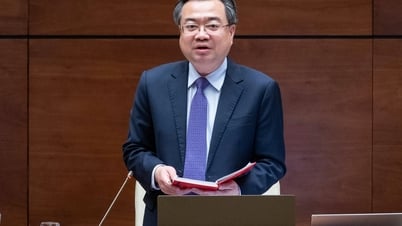











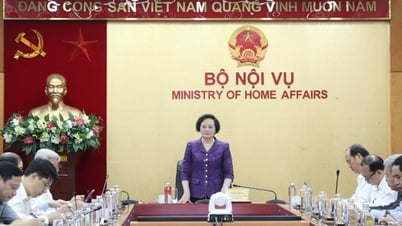

















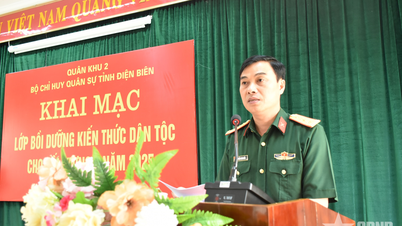




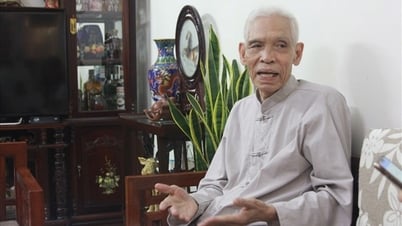
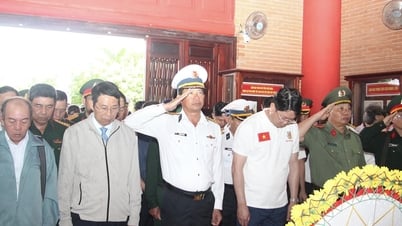



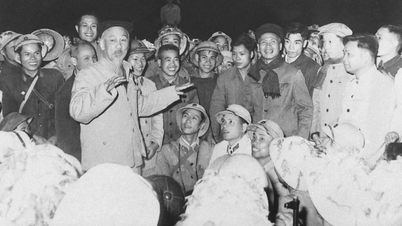


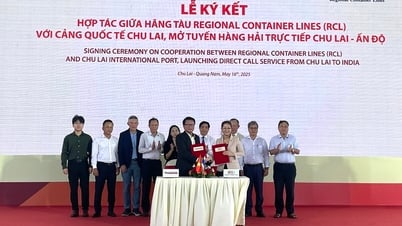










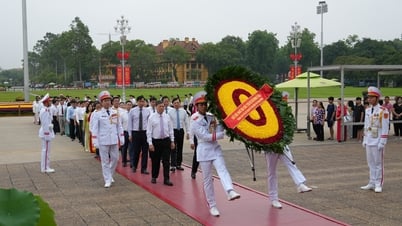


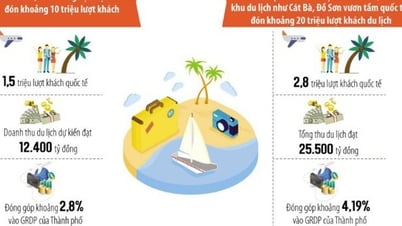





















Comment (0)